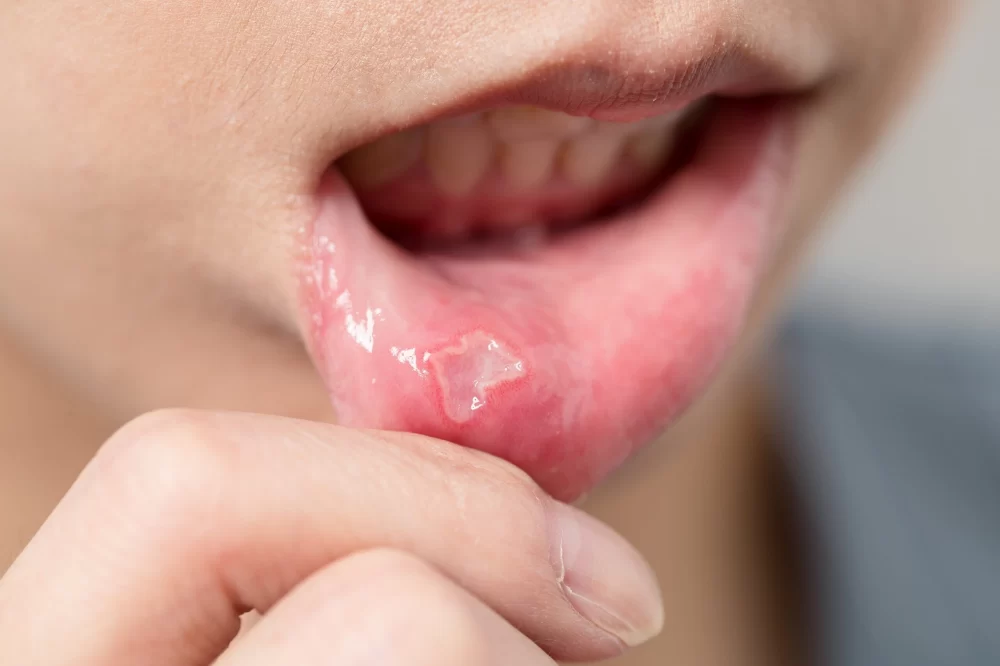
How to Effectively Treat and Prevent Canker Sores: A Comprehensive Guide
- 1-Understanding Canker Sores
- 2-Causes of Canker Sores
- 3-Symptoms and Diagnosis
- 4-Treatment Options
- 5-Prevention Tips
- 6-Real Life Examples and Stories
- 7-Conclusion
1-Understanding Canker Sores
Canker sores, or aphthous ulcers, are painful, small sores that typically appear inside the mouth. Unlike cold sores, which are caused by the herpes simplex virus, canker sores are not contagious. They are commonly found on the inside of the cheeks, lips, tongue, and even the soft palate.
These sores can vary in size and shape but usually cause a sharp pain, especially when eating or speaking. They are not life-threatening, but they can significantly affect your comfort and daily activities. While anyone can get canker sores, certain factors make individuals more susceptible.
2-Causes of Canker Sores
The exact cause of canker sores is unknown, but several factors are believed to contribute to their development. These include:
- Injury or irritation: Biting the inside of the cheek, dental work, or even aggressive brushing can trigger a canker sore.
- Stress: Emotional or physical stress is a common trigger for many people.
- Dietary deficiencies: Deficiencies in essential nutrients, such as vitamin B12, iron, and folic acid, can contribute to the development of canker sores.
- Hormonal changes: Hormonal fluctuations, particularly during menstruation, may increase the likelihood of canker sores.
- Underlying health conditions: Conditions like autoimmune diseases or gastrointestinal issues such as Crohn’s disease can also play a role.
Understanding these causes can help in managing and potentially preventing the occurrence of canker sores.
3-Symptoms and Diagnosis
The main symptom of a canker sore is the appearance of a painful ulcer inside the mouth. These sores typically have a white or yellow center with a red border. Other symptoms can include:
- Pain or discomfort when eating, drinking, or talking
- Swollen lymph nodes (in some cases)
- Burning or tingling sensations before the sore appears
If you are experiencing frequent or severe canker sores, it is advisable to consult with a healthcare provider. While most canker sores heal on their own within one to two weeks, persistent sores may indicate a more serious condition that needs medical attention.
4-Treatment Options
While there is no cure for canker sores, various treatments can help reduce pain, accelerate healing, and prevent future outbreaks. Here are some common options:
- Topical ointments: Over-the-counter gels and creams can be applied directly to the sores to provide pain relief and reduce inflammation.
- Oral medications: In severe cases, doctors may prescribe oral medications, such as corticosteroids, to reduce inflammation and promote healing.
- Mouth rinses: Antimicrobial mouthwashes or saltwater solutions can help cleanse the affected area and reduce bacterial growth.
- Pain relievers: Over-the-counter pain medications like ibuprofen or acetaminophen can help alleviate discomfort.
Natural remedies, such as aloe vera or chamomile tea, have also been reported to provide soothing effects. However, it’s always best to consult a healthcare provider before trying alternative treatments.
5-Prevention Tips
Although it’s not always possible to prevent canker sores, several measures can reduce the likelihood of an outbreak:
- Maintain good oral hygiene: Brushing and flossing regularly can help prevent infections that may trigger canker sores.
- Avoid irritating foods: Acidic or spicy foods can irritate the mouth and lead to canker sores.
- Manage stress: Since stress is a common trigger, incorporating stress-relieving activities like exercise, meditation, or relaxation techniques may help.
- Boost your immune system: Eating a balanced diet rich in vitamins and minerals will help keep your immune system strong and reduce the risk of developing sores.
By following these preventive measures, you can minimize the frequency and severity of canker sores.
6-Real Life Examples and Stories
Many people have found ways to cope with canker sores and even manage them effectively. For instance, Sarah, a frequent sufferer of canker sores, found that cutting out acidic foods and managing stress with yoga significantly reduced the frequency of her outbreaks.
Another example is John, who had recurring canker sores due to a vitamin B12 deficiency. After supplementing his diet with B12-rich foods and multivitamins, his sores became much less frequent, and when they did appear, they healed faster.
These real-life stories illustrate how lifestyle changes, dietary adjustments, and stress management can make a significant difference in preventing and treating canker sores.
7-Conclusion
Canker sores, though common, can be managed effectively with the right treatment and prevention strategies. By understanding the causes, recognizing the symptoms, and following a solid treatment plan, you can minimize their impact on your life.
If you’re struggling with frequent or severe canker sores, consider consulting with a healthcare professional for personalized advice. For more information on oral health and effective treatments, visit Dentistry Toothtruth.
Take control of your oral health today and prevent the discomfort of canker sores by implementing the tips and treatments mentioned above.







 BrismanDental4.0 (132 review)
BrismanDental4.0 (132 review) Facer Hales Parker Dentistry4.0 (601 review)
Facer Hales Parker Dentistry4.0 (601 review) Ramsey Family Dental5.0 (93 review)
Ramsey Family Dental5.0 (93 review) Tamaro Frank a DDS0.0 (0 review)
Tamaro Frank a DDS0.0 (0 review) Leesville Dental Studio4.0 (473 review)
Leesville Dental Studio4.0 (473 review) Dental Associates for Kids Only, LLP4.0 (188 review)
Dental Associates for Kids Only, LLP4.0 (188 review) The Importance of Oral Health Education During Pregnancy for a Healthy Pregnancy
The Importance of Oral Health Education During Pregnancy for a Healthy Pregnancy Best Tips for Brushing Your Teeth Properly for Healthy Gums: Essential Techniques for Oral Health
Best Tips for Brushing Your Teeth Properly for Healthy Gums: Essential Techniques for Oral Health Why Skipping Dental Checkups Can Lead to Bigger Oral Health Problems
Why Skipping Dental Checkups Can Lead to Bigger Oral Health Problems Advantages of Porcelain Dental Restorations
Advantages of Porcelain Dental Restorations How Can Diabetes Cause Tooth and Gum Problems? Preventing and Managing Oral Health Issues
How Can Diabetes Cause Tooth and Gum Problems? Preventing and Managing Oral Health Issues Healthy Habits for Promoting Good Oral Health and Hygiene: Tips for a Healthy Smile
Healthy Habits for Promoting Good Oral Health and Hygiene: Tips for a Healthy Smile